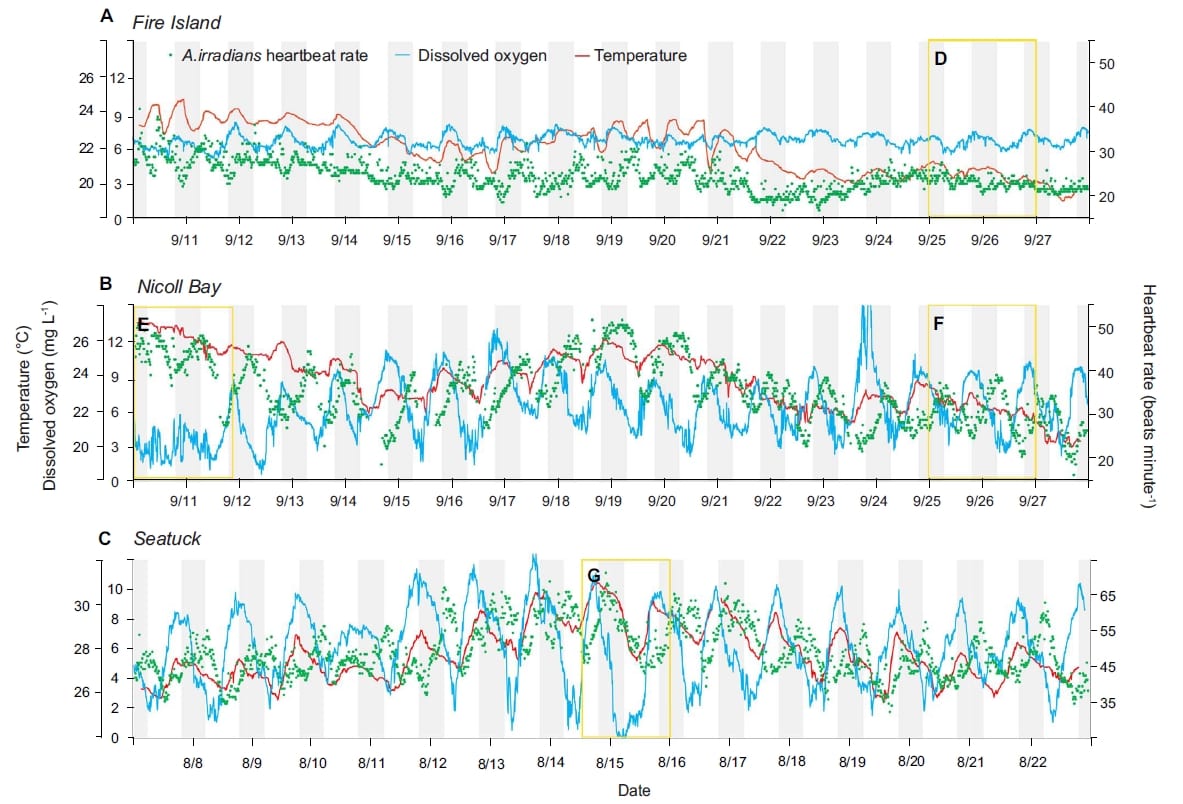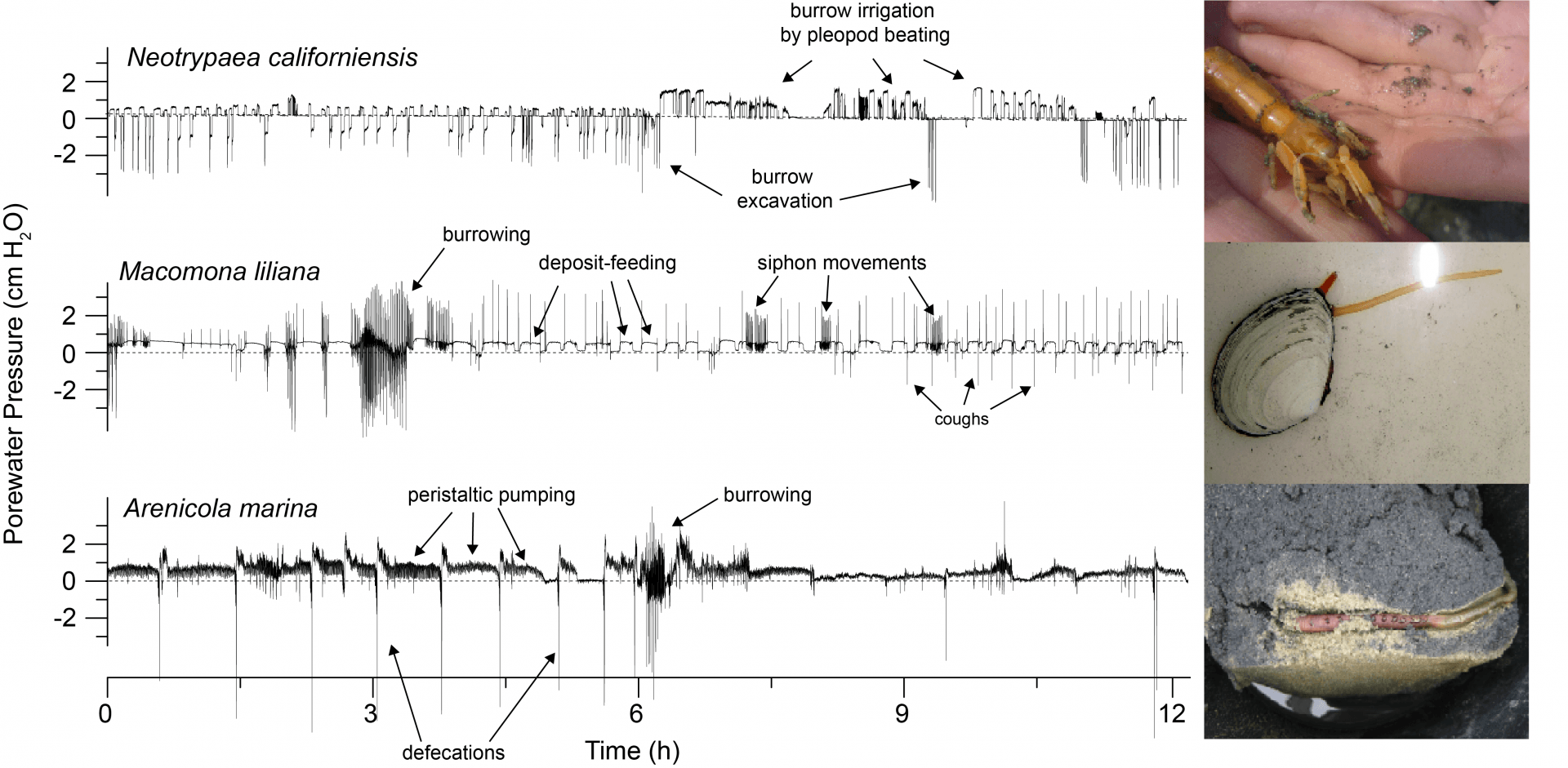Performance of benthic invertebrates in dynamic coastal environments Coastal environments are characterized by strong environmental fluctuations on various time scales, including diurnal changes in temperature, dissolved oxygen, seawater pH, turbidity or salinity. Some of the dynamics are already or are expected to intensify in the future. Using real-time sensors, we investigate the responses of benthic invertebrates to such rapid environmental changes to identify stress thresholds and characterize the resilience of economically and ecologically important benthic invertebrates. Past research was supported through the New York Sea Grant.
Infrared sensors allow us to measure the heartbeat of shelled organisms in the field and in the lab. Heartbeat rates are one of the few parameters that can be measured with a temporal resolution that allows us to identify environmental thresholds at which conditions become stressful for organisms. One goal of this work is to improve understanding how benthic organisms cope with repetitive exposure to non-lethal stress.

Hall Effect sensors allow us to monitor valve gaping in bivalves. This gives important information about when these organisms are feeding and under which conditions they close their valves.

Pressure sensors can be used to measure small fluctuations in porewater pressure to record the activities of infaunal organisms and their responses to environmental changes.

